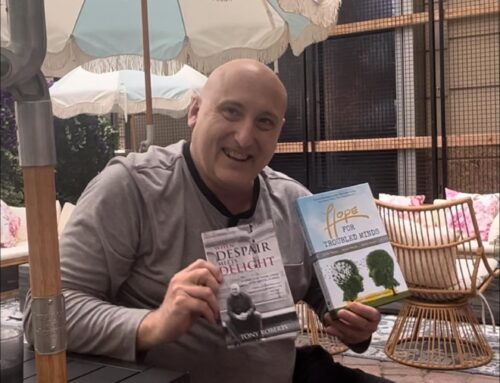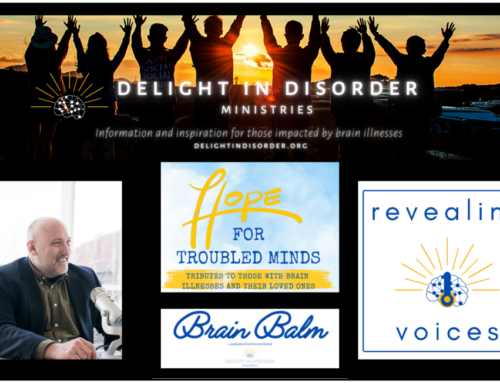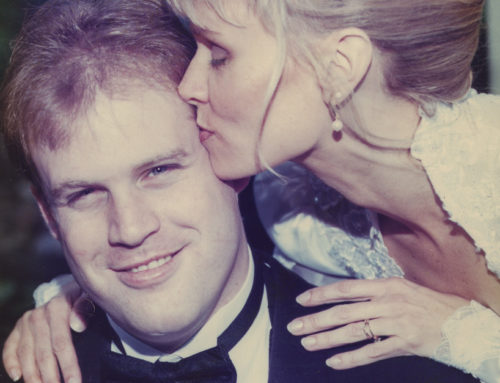Read, read, read. Read everything — trash, classics, good and bad, and see how they do it. Just like a carpenter who works as an apprentice and studies the master. Read! You’ll absorb it. Then write. If it’s good, you’ll find out. If it’s not, throw it out of the window. ―
One of the perks of being a writer is fellow authors send me their books. This week I’ve been blessed to read two books that have helped me expand my literary companionships. Diana Gruver and Greg Ralls “get” the experience of living with mental health challenges and their stories depict this so well.

The church’s relationship with depression has been fraught: for centuries, depression was assumed to be evidence of personal sin or even demonic influence. The depressed have often been ostracized or institutionalized. In recent years the conversation has begun to change, and the stigma has lessened–but as anyone who suffers from depression knows, we still have a long way to go. In Companions in the Darkness, Diana Gruver looks back into church history and finds depression in the lives of some of our most beloved saints, including Martin Luther, Charles Spurgeon, Mother Teresa, and Martin Luther King Jr. Without trying to diagnose these figures from a distance, Gruver tells their stories in fresh ways, taking from each a particular lesson that can encourage or guide those who suffer today. Drawing on her own experience with depression, Gruver offers a wealth of practical wisdom both for those in the darkness and those who care for them. Not only can these saints teach us valuable lessons about the experience of depression, they can also be a source of hope and empathy for us today. They can be our companions in the darkness.
My review:
Three of the most compassionate words I’ve ever heard are, “I get you.” In a faith that is based on a relationship with the person of Jesus Christ, one of the surest way to grow together in faith is to connect with someone who shares our struggles. Clinical depression, a medical condition, can strike anyone at anytime. Even the most saintly among us can be prone to fall in a “pit of Sheol.” In fact, saints are perhaps even more vulnerable as they cling to the cross they carry for Christ.
Diana Gruver gets depression. First-hand. Her depression has also sent her on a journey to find companions in the darkness. This wonderfully written and well researched book unveils seven (and more) believers who reflected the light of Christ even as they walked, or crawled, or sat, in darkness. There are saints of many stripes. I discovered one I hadn’t heard of and learned more about the more popular ones.
As a Christian diagnosed with bipolar depression, I feel less alone than when I started reading this book.

Unravel: To Unwell and Back by Greg Ralls.
In his late 20s, Greg Ralls became mentally ill and experienced first-episode psychosis. He reported a suspected homicide to police and was straightjacketed and made an involuntary patient in a locked ward of Graylands Psychiatric Hospital.
This is the story of an ordinary Australian, a boy from rural Victoria who excelled academically, who as a young man earned double degrees with honours from The University of Melbourne before moving across the continent to Western Australia to work for a successful consulting engineering firm. Four years after moving his world fell apart: he was unwell, lost his job, and was admitted to hospital.
Readers are invited to share Greg’s journey, from childhood to his adult years when his life unravelled, and to recovery. He relates his experience with clarity and honesty, and his intelligence and positive attitude shine throughout.
My Review:
The human brain is a profoundly complex organ. While major advances have been made in the treatment of “mental illness,” we can only care, not cure, and sometimes our care does more harm than good. If we are to grow in our understanding of those with “serious mental illnesses” (i.e. schizophrenia, bipolar disorder, major depression), we need to listen to what they have to say to us, both when they are “well” and when they are “unwell.”
Greg Ralls paints an honest and clear portrait of a man whose insights are not shared by others. Rather than becoming belligerent and insisting his way is THE ONLY way, he finds a way to navigate with clear principles. His struggle gets to the heart of mental healthcare. If I am given what I firmly believe is a misdiagnosis, should treatment be forced on me? Is “anosognosia” (lack of insight) a cop-out condition or an essential description of who we are and how we think?
Ralls unravels this and prompts us to ponder the mysteries of the mind and not jump so quickly to ready-made diagnostic codes. This book is a compelling read for those impacted by brain illnesses, including loved ones and those who want to show better care and compassion.








Leave A Comment